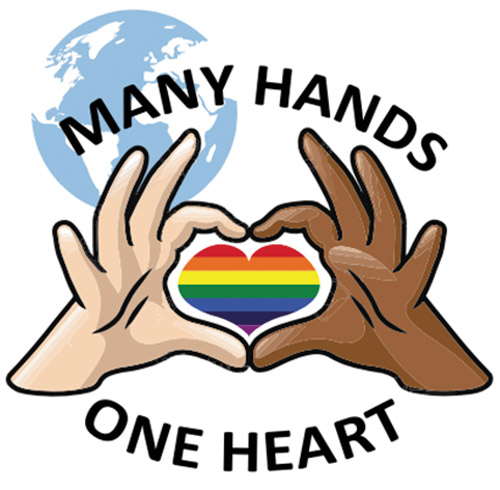By Mimoza Gashi
The UK has a long standing history of offering sanctuary and protection to some of the most vulnerable groups of people in the world. The horrific atrocities of the Second World War unfortunately were an awakening call to the UK and the rest of the international world to make sure history did not repeat itself.
As a result of this the UK played a significant role in drafting the UN Convention, alongside 48 countries, in order to protect individuals from brutal dictatorships and offer those citizens a symbol of hope. However, offering hope and protection is one that the UK is continuously failing in its policy. What is written on paper and what is actually put into practice are significantly two separate procedures. Decision makers are interpreting policies to their own accord, meaning each case is dealt with differently with no consistency.
The most vulnerable individuals who do not satisfy the cultural norm within their communities, within their country of origin, due to their distinct characteristics, are shunned by their peers, violated, abused, imprisoned and murdered.
Five years ago the UK government promised to offer sanctuary and protection to those who are fleeing persecution because of their gender and sexual identity. The UK may be the friendliest LGBT (Lesbian, Gay, Bisexual, and Transgender) country in Europe. However, it’s saddening to say it is still failing to stand by its promise.
The LGBT asylum and refugee community is up against a system put in place to challenge and inappropriately question one’s identity, with no consideration given to the high risk of exposure in the individual’s country of origin and the lack of state protection for the individual if returned.
In 2010, UK Lesbian and Gay Immigration Group (UKLGIG) exposed that 98-99% of gay and lesbian asylum seekers had been refused asylum and told to go back, often to violently homophobic countries like Iran and Uganda. It has become very evident and apparent from decisions we have read, appeal hearings and Home Office interviews we have attended, the harshness of a very unsympathetic asylum system.
Individuals were (and continue to be) forcibly removed from the UK and told to go back and live “discreetly” and conceal their sexual and gender identity. In 2014, Theresa May, the then Home Secretary, commissioned the Independent Chief Inspector of Borders and Immigration to conduct an investigation into the treatment of gay, lesbian and bi people claiming asylum. The investigation found a fifth of asylum interviews contained stereotyping and a tenth contained inappropriate questions likely to elicit a sexual response.
Many Hands One Heart members (LGBT asylum and refugee support group in Liverpool) have reported that, although the investigation may have influenced change on paper and decision makers have been trained, inappropriate and explicit questions are still being asked to establish one’s identity.
Hearing members’ experience in the asylum system has highlighted concerns that cases are not being treated with respect and dignity, and more needs to be done in order for the Home Office to improve their practices to create a fairer system.
In order to address the above issues and influence change, in January 2014 an agreement was drawn up between the School of Sociology and Social Policy at the University of Liverpool and Sahir House for a research project specifically focusing on LGBT people’s experience in the UK’s Asylum Application process.
Sahir House has a long standing history in supporting and advocating for individuals from the LGBT community. The organisation recognised a need to explore and evidence the unique experiences of lesbian, gay, bisexual and transgender (LGBT) asylum seekers and refugees in the asylum process and how their support needs differ as they go through the different stages of the process.
The research was able to identify social, structural and personal barriers individuals faced during the asylum process and the detrimental effect on their mental and physical health. Individuals were not emotionally or mentally ready to disclose due to the fear of being ostracised by their peers and community. The research called for a safe, confidential and secure space for LGBT asylum and refugee support groups where the above fears and concerns could be addressed by providing support and information from key professionals i.e. legal representatives, etc.
In 2016, in partnership with the third sector and voluntary organisations, Sahir House launched the first LGBT asylum and refugee support group Many Hands One Heart. The group was able to establish its main aims, which were collated via a number of questions put forward to members in order to achieve the group’s objectives. Through a number of meetings and workshops the group members expressed a real need for creating and establishing a space which felt safe, confidential, and non-judgmental and where individuals felt supported.
As a result of creating new partnerships, through the group and already established networks, we have been able to provide advice, support and information to members in the support meetings. The meetings are held on a fortnightly basis and each session is tailored to meet members’ needs.
In order to increase the profile of the group and address concerns and issues expressed by members in regard to challenging homophobic abuse, the merciless asylum process and the lack of service provision, individuals have eagerly stood on platforms to openly share their stories.
This has led the group to be invited to LGBT celebration events, such as Liverpool and Manchester Pride, as well as others, to celebrate and stand in solidarity with the LGBT community, nationally and internationally.
The group continues to rapidly grow with at least three to four new referrals a month from external partners, as well as receiving self referrals.
Website: www.sahir.org.uk
